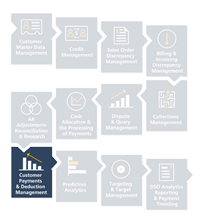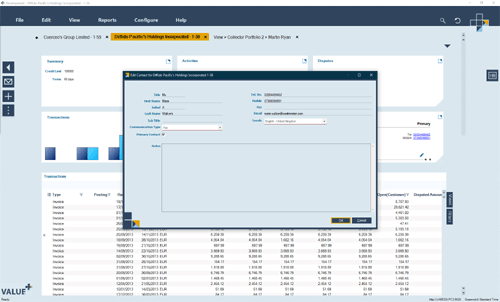CUSTOMER PAYMENTS AND DEDUCTION MANAGEMENT

Deduction Management
- In some industries (retail, automotive are both examples), there is an agreement in place where the customer can deduct from the payment, stating their reasons
- Deductions are normally an agreed way of working
- A deduction results in an actual transaction being placed into the finance system
- Its typically up to the supplier to disprove the deduction
- CVG has built special functionality for this particular purpose called Deduction Management
- Deduction Management deals with any short payments on invoices where a customer does not pay the full amount (for whatever reason)
- As you probably already know, whenever a payment of an invoice is LESS than the invoice amount, most ERPs generate a ‘payment difference’ transaction type for the difference
- CVG Value+ then generates an “Unidentified Deduction task” so collectors can find out more information about why this deduction happened in the first place…
CVG Value+ then supports 3 advanced methods for resolving those unidentified deductions
AUTO-MATCH
CVG Value+ checks if the deduction can be matched to an existing dispute (based on Debit Number and Claim value)
IF match occurs: Upon matching this dispute to the Unidentified Deduction – the Unidentified Deduction is closed and the Dispute gets a tick-box ticked called “Deduction Taken”
PARTIAL
CVG Value+ checks if the deduction can be matched to an existing dispute (based on Debit Number and Claim value)
If NO match occurs BUT other disputes are listed on the account, a list of disputes are provided so the collector can perform a manual match-up. Upon matching this dispute to the Unidentified Deduction – the Unidentified Deduction is closed and the Dispute gets a tick-box ticked “Deduction Taken”
NO MATCH
If a match cannot be made, the Unidentified Deduction can be ‘transformed’ into a dispute by changing the Activity Type…

